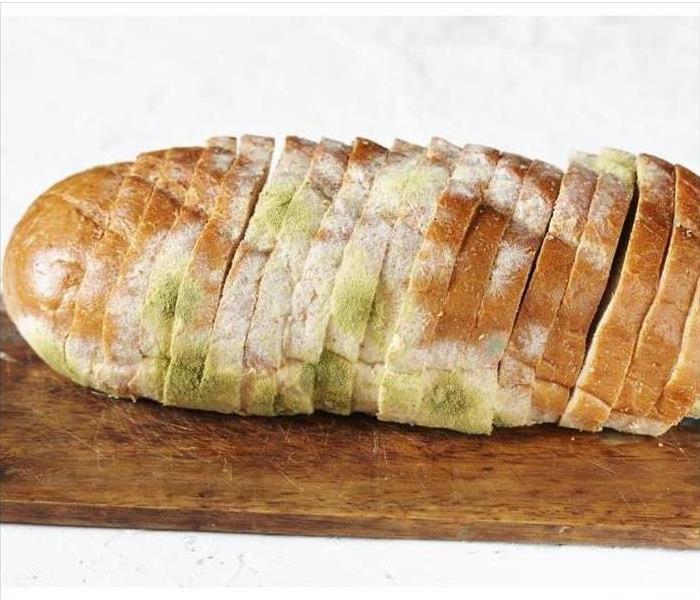Why Does Bread Get Moldy?
8/28/2022 (Permalink)
It happens to everyone at some point. You buy a fresh, delicious loaf of bread and store it on the counter or in a cabinet. A few days later, you open the bread and — yikes! Bread mold! To understand what causes those fuzzy-looking green, blue, white, or gray patches of mold to appear on your bread or other food items, you need to know a little bit about the way mold functions.
Where Does Mold Come From?
The air in New Sweden,TX — and everywhere else — is filled with microscopic mold spores. These airborne spores are inactive, and they’ll remain dormant until they land in a place with both moisture and a food source. When that happens, the mold spores become active and begin to feed, grow, and multiply, eventually forming colonies.
What Counts as a Food Source?
For mold spores to activate and grow, they need water and food. The water requirements for fungus growth aren’t much: for example, a slice of bread contains enough moisture for a bread mold colony to thrive. Most of the surfaces in your home can serve as a potential food source for active mold, including:
- Drywall
- Furniture
- Wood
- Carpeting and rugs
- Paper
- Drapes and upholstery
- Food scraps
What About Refrigerated Foods?
While mold is most prolific in warm, humid environments, many kinds of mold can grow in cooler environments, including inside your refrigerator. If you notice fridge mold frequently, that could be a sign that the air in your home has an abnormally high concentration of mold spores.
How Much Mold Is Normal?
All household air contains mold spores, but some homes have higher mold levels than others. If you notice an increase in moldy food, see mold in other places, or detect a musty smell, your home could have excessive mold counts. A certified mold remediation specialist can test your home’s mold levels.
The occasional bread mold is a normal occurrence and is no cause for concern. However, if you encounter mold more frequently, consider scheduling a mold inspection.




 24/7 Emergency Service
24/7 Emergency Service
